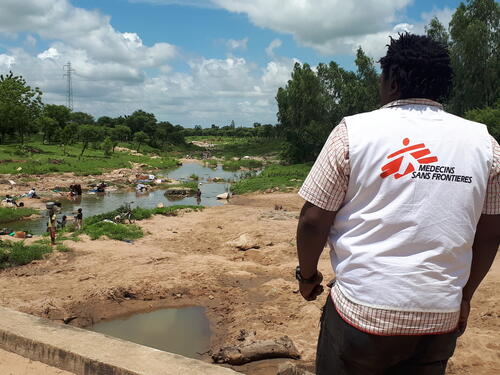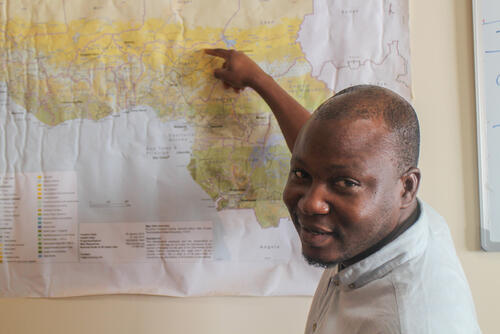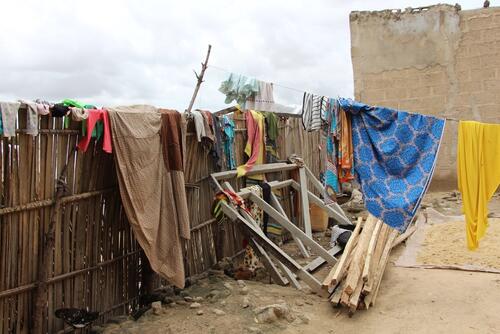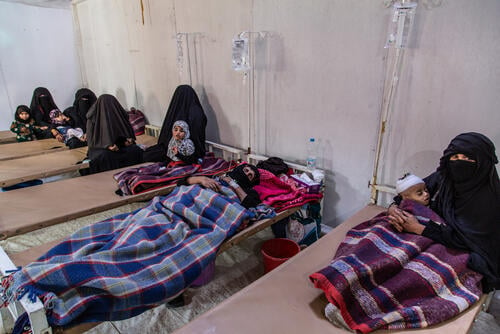The north of Cameroon is facing an outbreak of cholera, with an increase in the number of cases reported since May 2019.
Médecins Sans Frontières (MSF) teams of health promoters, water and sanitation experts, medical staff and epidemiologists are working to prevent the outbreak from spreading – and to avoid another serious spike in cases like that which affected the Lake Chad region in 2018.
"The town of Pitoa has reported a dozen cases of cholera, including three deaths, in a short period of time – and these cases do not seem to be related to each other. The situation is particularly worrying, because it means that cholera has spread in the community," says Justin Eyong, MSF epidemiologist.
Since May 2019, cases of cholera have been increasing in northern Cameroon, in Pitoa and in nearby Garoua, the capital of the region, but also further north in villages located in Kaélé health district.
In 2018, the countries neighbouring Lake Chad were struck by several outbreaks of the disease, which affected more than 45,000 people and killed more than 900.
MSF responded in Cameroon, Nigeria and Niger, supporting the local health authorities to provide care for more than 30,000 patients and to vaccinate more than 550,000 people.
Now, MSF teams have returned to the region to prevent this latest epidemic from getting out of control.
"Cholera is a serious and highly contagious disease that can cause death within 24 hours if not treated," says Dr Jean-Patrick Ouamba, deputy medical coordinator with MSF.
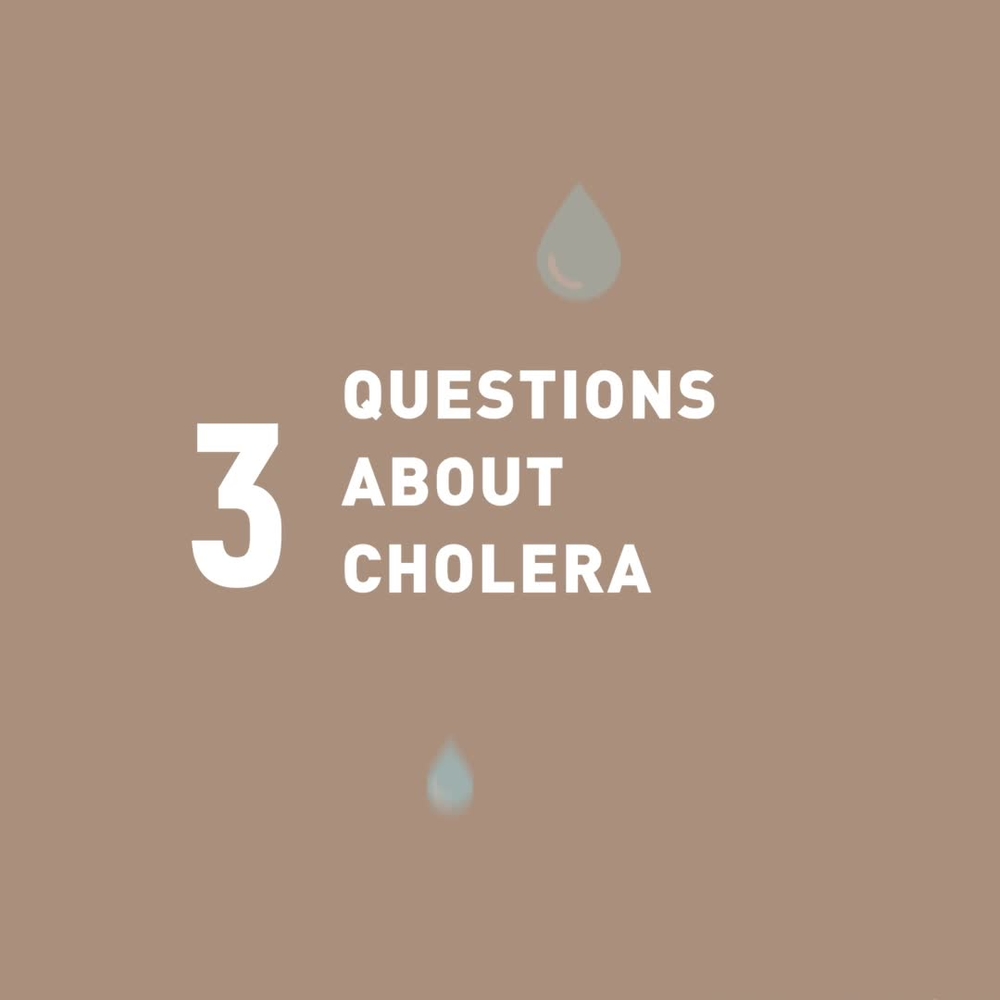
Interview with Dr Jean-Patrick Ouamba on cholera in the Lake Chad region
Cholera is a serious and highly contagious disease that can cause death within 24 hours if not treatedDr Jean-Patrick Ouamba, deputy medical coordinator with MSF
Understanding the underlying causes
As the MSF team arrived in Pitoa, local health authorities had already begun to investigate the situation by questioning people presenting with symptoms of the disease on their recent movements, diet and other activities.
"It was found that almost half of the cases had contact with dubious water sources: probably contaminated water used to wash clothes or dishes, or wells dug near contaminated latrines," explains Justin Eyong.
Alphonse Elogo, water and sanitation specialist, and Hadidjatou Bidisse, an MSF health promoter, were able to identify potentially contaminated water sources by talking to local people in these areas.
This epidemiological investigation allows teams to target the response to the outbreak – in particular, the organisation of health promotion activities in the community on good hygiene practices, the disinfection of water sources and the organisation of vaccinations.
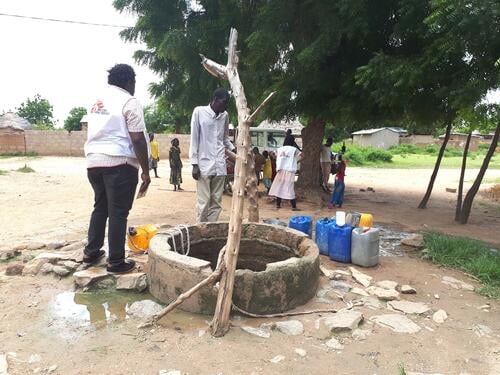
The importance of vaccination
"When it comes to cholera, targeted prevention – including vaccination – is a priority. Of course, there is also a need to prepare for treatment of patients because the disease can very quickly be deadly. But this does not replace the importance of prevention, which aims to prevent the spread of the disease beyond the first cases," says Dr Jean-Patrick Ouamba.
In early August, a vaccination campaign was organised in the region of Garoua by the local health authorities.
"This should help stem the spread of the epidemic, but not all affected areas have been vaccinated. This is particularly the case in Kaélé health district, where cases have been recorded regularly since the end of June 2019," says Dr Jean-Patrick Ouamba.
There is a need to prepare for treatment of patients because the disease can very quickly be deadly, but this does not replace the importance of preventionDr Jean-Patrick Ouamba, deputy medical coordinator with MSF
Educating communities
In Kaélé, as well as in Pitoa, MSF teams are working to educate patients, their families and caregivers, medical staff and the population in general about the disease.
Community members in at-risk areas are regularly informed about preventive measures to pass on to their communities: washing hands before meals and after using the toilet, treating water before use, washing vegetables and fruits before eating and adequately cooking all meals.
With the support of other humanitarian organisations, more widespread health promotion activities are planned.
"We are also considering the disinfection of some water sources and will make a call for improved access to clean drinking water in the long term," explains Alphonse Elogo, MSF water and sanitation specialist.
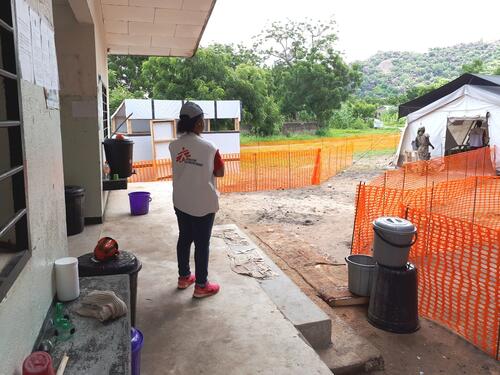
Supporting health facilities
In addition to prevention, MSF has rehabilitated three health facilities in Garoua, Pitoa and Midjivin (in Kaélé health district) and provided the facilities with equipment and staff training, to support the treatment of cholera patients. Some facilities are being directly assisted by MSF staff.
MSF's medical teams maintain a heightened level of vigilance in the north of Cameroon, as well as in the neighbouring state of Borno, northeast Nigeria, and in the regions of Mayo-Kebbi East and Mayo-Kebbi West in Chad.
Cholera in the Lake Chad Basin
Cholera, a serious and highly contagious disease that can cause severe diarrhoea and vomiting, is endemic in the Lake Chad Basin. Without adequate treatment, the disease can rapidly prove fatal due to severe dehydration.
Cholera is transmitted through contact with the stools or vomit of people infected with the disease, namely through poor hygiene practices, including not washing hands after using the toilet, or ingesting contaminated food or water.
In the rainy season, floods increase the risk of transmission of the disease. Poverty and population displacements related to insecurity in the Lake Chad region are also aggravating factors for the spread of cholera.
Many people in this region live in precarious conditions in close proximity to others, without access to clean drinking water or adequate sanitation. In addition to this, local health systems are weak or often affected by conflict.



